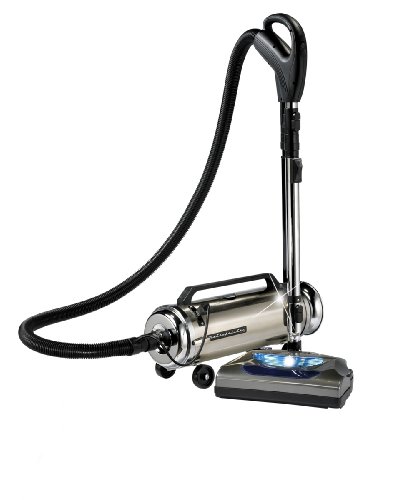
When I was a kid my mom had this horizontal cylindrical vacuum cleaner that could easily suck up a roll of quarters, this thing was strong! I, of course, found creative ways to utilize this amazing machine in many ways other than floor vacuuming. My dog very patiently sat for me while I vacuumed her shedding hair off of her and this worked great. However; scratched and bloodied, I also found out that vacuuming my cat was not so great an idea. My vacuuming adventures eventually found me self inflicting vacuum “hickies” up and down my arms and possibly on my forehead if memory serves me correctly. Ultimately I gravitated towards my fish tank where I found that if you held the suction end just an inch or so above the water it would actually start sucking up droplets of water! This was cool, although highly not recommended.
As I looked at the vacuum and realized how dry, dusty, and thirsty its insides must be, and how my aquarium gravel could use a cleaning, I decided to give the vacuum a good deep gravely drink from my fish tank. Next thing, everything turned off in the house and the thirsty vacuum now had a good leak coming out of it. I think I got yelled at pretty good that day, but this experience made me realize I need the right tools for the job at hand and later on I did get a gravel vacuum for my fish tank so I could clean the gravel…properly.
Many years later as a pond builder I started using gravel in my pond and the ponds that I built for my customers. Again the issue of cleaning gravel was at hand and the fish tank vacuum gravel would not cut it and so called “pond vacuums” for me were more maintenance than they seemed worth. But why clean gravel, why even have gravel?
Gravel use in ponds is a hotly debated topic in the pond world with many people firmly, even passionately, on the side of “use gravel” or “don’t use gravel”. I sit in the middle of this debate because I have seen many successful ponds using either approach, but I happen to like using gravel better. I like how gravel, rocks, and boulders offer a very natural aesthetic to my pond as opposed to an exposed rubber liner void of anything natural, along with the many other benefits gravel offers to my pond.
Gravel in the pond, like in a fish tank is much more than just an ornamental element, it serves a function use as well. Gravel IS a filter.
The word filter is a verb and a noun. The verb filter, refers to the removal of an element from a material be it gas or liquid. The noun filter, describes the mechanism that does the removal.
So why is gravel a filter?
Because gravel removes particulate matter and sediment from the water in our ponds, thereby clarifying the water. This type of filtration is referred to as “mechanical filtration”.
Gravel helps to remove/break down/filter nutrients from our pond water via the beneficial bacteria that colonize our gravel beds. This is referred to as “biological filtration”.
Gravel, in fact, offers biological and mechanical filtration in our ponds. This is a positive thing, who can argue different?
Maintenance? Like filters of any type, maintenance is a necessity. I hear many arguments against using gravel in ponds and what they all seem to boil down to is really a maintenance issue. People often warn of noxious conditions being created by gravel, and although this condition seems to be very rare (I personally in 15+ years have never come across this condition in a graveled pond) it is directly linked to gravel that has not been maintained, and really any filter that has not been maintained can be a liability to a pond or whatever system that filter is applied to. If correct maintenance is being done then the gravel should not present any sort of noxious condition, ever. Just like in a fish tank where the gravel vacuum is used to clean the gravel bed and maintain healthy conditions in the aquarium setting, the gravel in a pond should be cleaned too, I suggest annually. I like to clean my gravel as part of my annual spring cleanout of my pond. I just hose it down and sift it a bit and drain out the dirty water, for my 26X14 pond the gravel cleaning takes me about 1 hour every year, not too bad!
To recap, gravel has aesthetically pleasing qualities, provides biological and mechanical filtration and is low maintenance; for me, these are some excellent reasons to choose the use of gravel in a pond. The only issue I can see with gravel is that it needs maintenance, but don’t all filters? So I clean it once a year, big deal, I actually enjoy it.
Some other advice when it comes to gravel maintenance: the plug in vacuum cleaner is not so great for gravel, but brilliant for cleaning a shedding dog. Gravel can be used effectively for all above reasons, but it does need to be maintained, and in my humble opinion that is not a bad trade-off.
